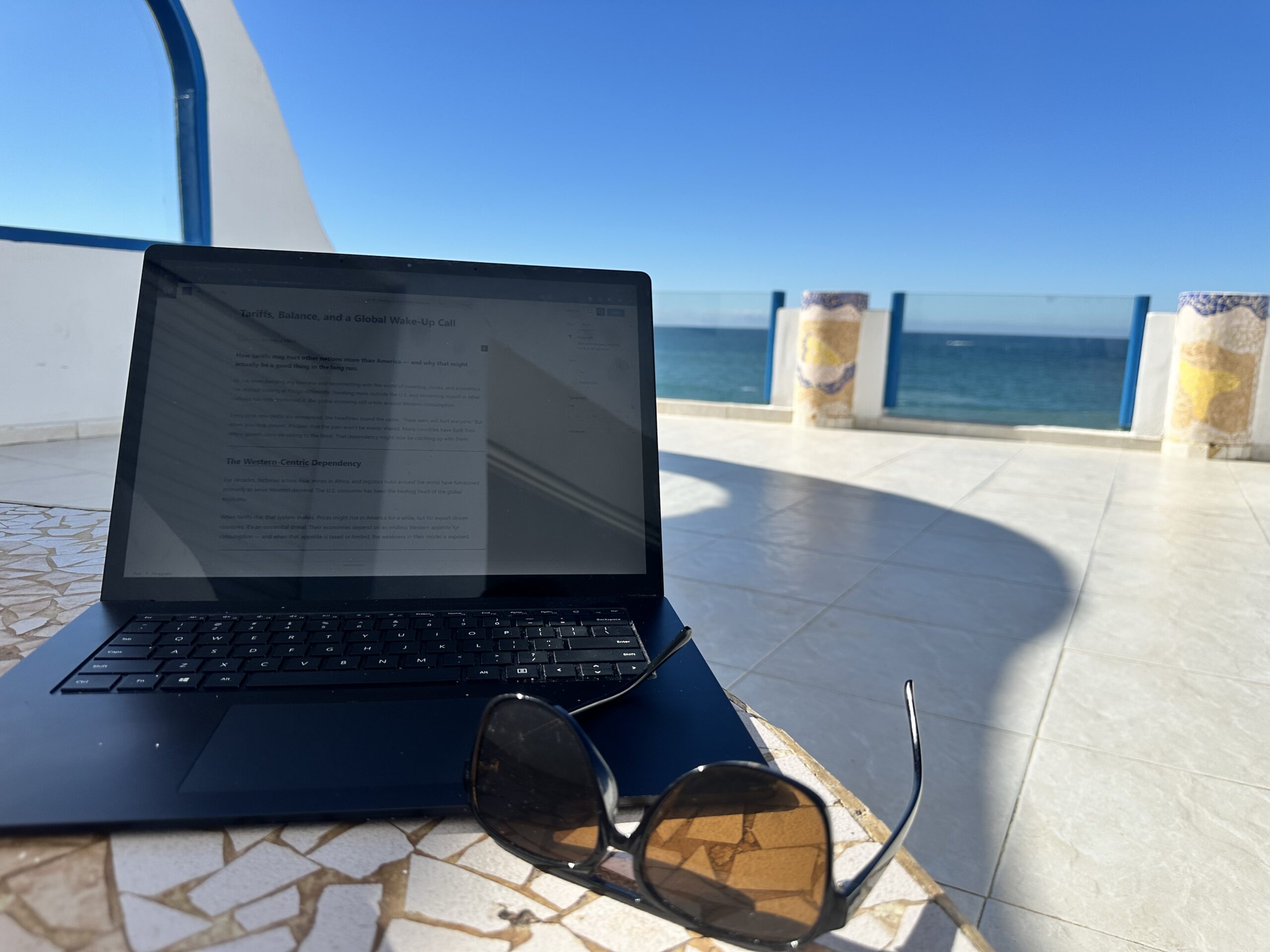Cover Picture: Looking straight across the Atlantic at America
fun fact: Tariff originates from the Arabic word “ta’rīfa” or “ta’rīf”
How tariffs may hurt other nations more than America — and why that might actually be a good thing in the long run.
As I’ve been building my business and reconnecting with the world of investing, stocks, and economics, I’ve started looking at things differently. Traveling more outside the U.S. and immersing myself in other cultures has only reinforced it: the global economy still orbits around Western consumption.
Every time new tariffs are announced, the headlines sound the same: “Trade wars will hurt everyone.” But when you look deeper, it’s clear that the pain won’t be evenly shared. Many countries have built their entire growth story on selling to the West. That dependency might now be catching up with them.
The Western-Centric Dependency
For decades, factories across Asia, mines in Africa, and logistics hubs around the world have functioned primarily to serve Western demand. The U.S. consumer has been the beating heart of the global economy.
When tariffs rise, that system shakes. Prices might rise in America for a while, but for export-driven countries, it’s an existential threat. Their economies depend on an endless Western appetite for consumption — and when that appetite is taxed or limited, the weakness in their model is exposed.
The Flawed Metrics of Success
GDP growth. Productivity. Consumer spending. These have long been treated as the universal indicators of progress. They’ve delivered wealth, but also debt, inequality, and overconsumption.
As I’ve watched and traveled, I’ve realized how many nations have tried to mirror this formula, often at the cost of their own identity and balance.
If exporting to the West becomes harder, maybe it’s time to redefine success.
What if prosperity meant stronger local markets, not just exports?
What if growth meant better lives, not bigger numbers?
What if balance mattered more than blind expansion?
The Path Forward
This isn’t an argument against capitalism or Western economics. It’s a call for balance. The Western model has its strengths — innovation, scale, efficiency — but also its blind spots.
Ironically, tariffs might become the catalyst for nations to rediscover their own rhythms, their own consumers, their own definitions of value.
Because when the global economy stops orbiting around one center, the world becomes healthier, more self-reliant, and more sustainable.
Inch’Allah, that shift will be the real victory hidden inside the short-term pain.

